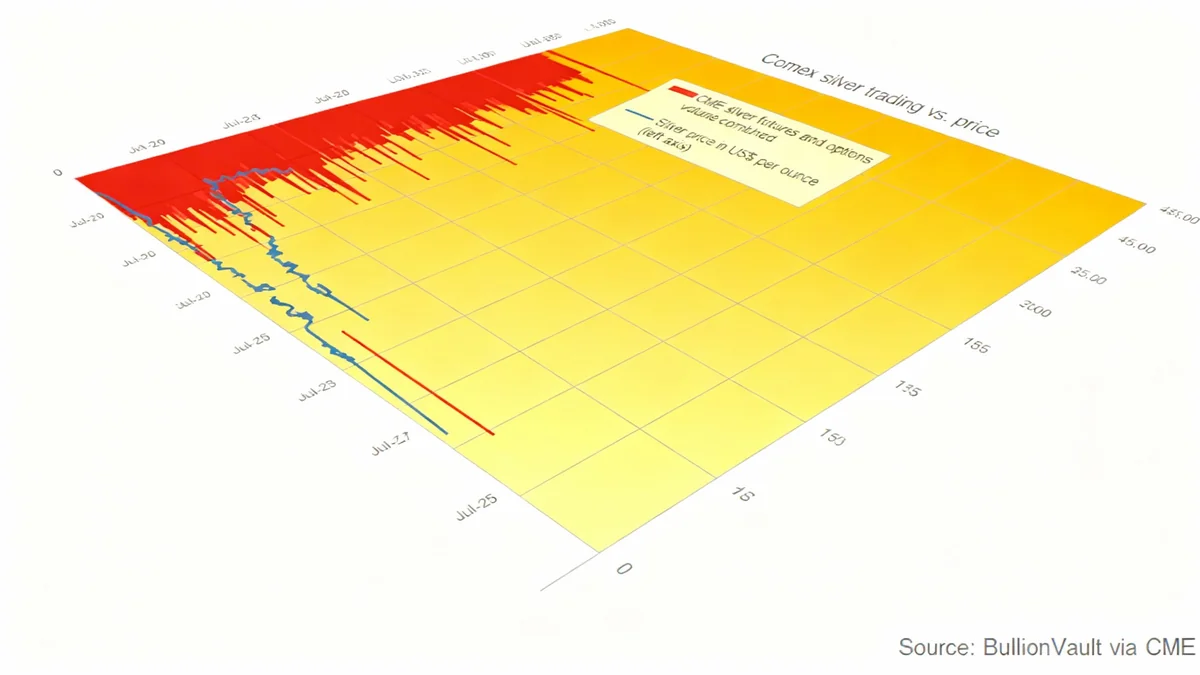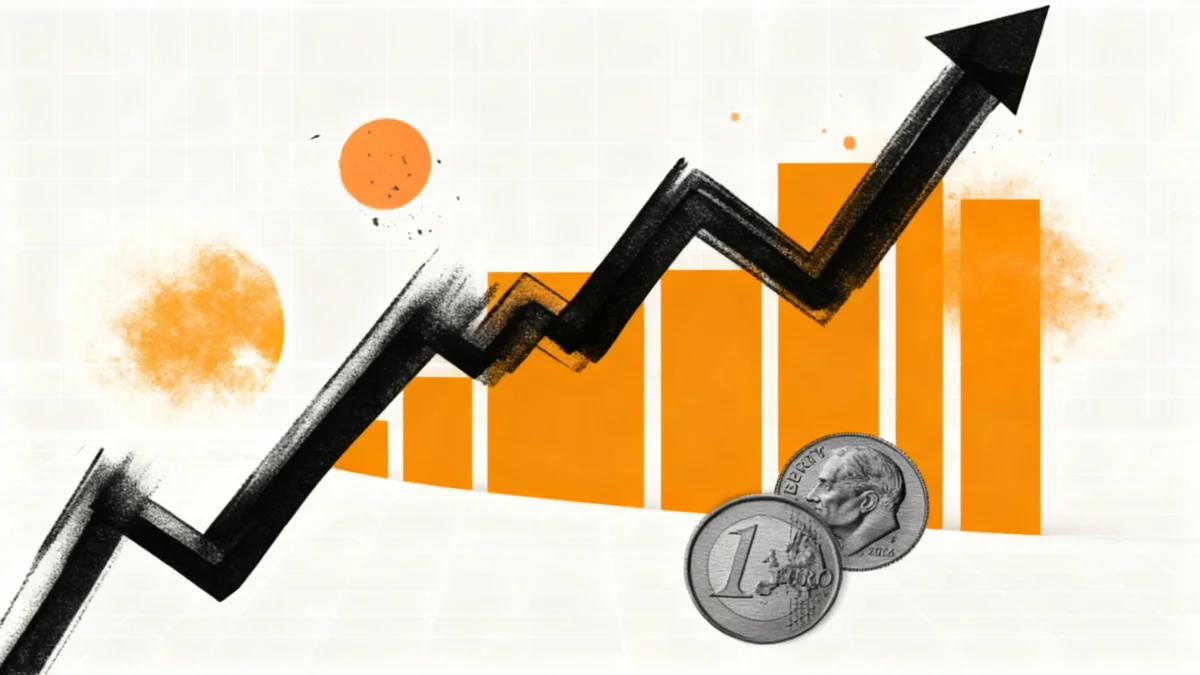UnitedHealth Group (UNH) presents a conflicting picture for investors. While a significant majority of Wall Street analysts recommend buying the stock, a quantitative model based on earnings estimate trends is signaling potential weakness. This divergence highlights a critical debate for investors: whether to follow analyst sentiment or data-driven earnings forecasts.
Recent data shows that while over 65% of brokerage firms covering UnitedHealth rate it as a Buy or Strong Buy, the company has received a Zacks Rank #4 (Sell). This negative rating is linked to a recent decline in the consensus earnings per share (EPS) estimate for the current year, suggesting that analysts' underlying financial projections are becoming more pessimistic despite their positive public ratings.
Key Takeaways
- Conflicting Signals: UnitedHealth Group (UNH) has a positive Average Brokerage Recommendation (ABR) of 1.94, indicating a consensus "Buy" from Wall Street analysts.
- Earnings Concerns: Despite the positive ratings, the company's consensus earnings estimate for the current year has recently been revised downward by 0.8%.
- Quantitative Warning: A proprietary rating system, the Zacks Rank, has assigned UNH a #4 (Sell) rating, citing the negative trend in earnings estimate revisions.
- Investor Dilemma: This situation requires investors to weigh the optimistic sentiment of sell-side analysts against quantitative data that suggests potential near-term stock price pressure.
Wall Street Maintains a Bullish Stance on UnitedHealth
An examination of analyst ratings reveals a strong positive sentiment toward UnitedHealth. The company currently holds an Average Brokerage Recommendation (ABR) of 1.94. This score is calculated on a scale of 1 (Strong Buy) to 5 (Strong Sell), placing UNH firmly in the buy category.
This ABR is derived from the recommendations of 26 different brokerage firms. A detailed breakdown of these ratings provides further clarity on the consensus view:
- Strong Buy: 15 analysts (57.7% of the total)
- Buy: 2 analysts (7.7% of the total)
- Hold: 9 analysts
- Sell: 0 analysts
- Strong Sell: 0 analysts
Combined, 65.4% of covering analysts have issued a clear buy-equivalent rating for the healthcare giant. This broad agreement typically provides confidence to investors looking for growth and stability.
What is an Average Brokerage Recommendation (ABR)?
The ABR is a numerical average of the ratings provided by sell-side analysts who cover a specific stock. It converts qualitative ratings like "Buy," "Hold," and "Sell" into a standardized 1-to-5 scale to provide a single, easy-to-understand metric of overall analyst sentiment.
A Deeper Look at Analyst Ratings and Potential Bias
While the strong consensus on UnitedHealth appears compelling, investors often consider the context behind Wall Street recommendations. Sell-side analysts work for brokerage firms that may have business relationships with the companies they cover. This can sometimes create an incentive for overly optimistic ratings.
Research has indicated a systemic positive bias in the market. According to an analysis by Zacks Investment Research, for every "Strong Sell" recommendation issued by brokerage firms, there are approximately five "Strong Buy" recommendations. This skew suggests that downgrades and sell ratings are used sparingly, and a "Hold" rating is often interpreted by market participants as a discreet signal to sell.
"Several studies have shown limited to no success of brokerage recommendations in guiding investors to pick stocks with the best price increase potential," notes Zacks Equity Research, highlighting the challenge of relying solely on these ratings.
Because of this potential for bias, many experienced investors use analyst recommendations as a starting point for their own research rather than a final decision-making tool. They often cross-reference these opinions with other data sources, particularly those focused on a company's fundamental financial health.
The Warning Signal from Earnings Estimate Revisions
Contrasting with the positive analyst sentiment is a concerning trend in UnitedHealth's earnings forecasts. The Zacks Rank, a quantitative model that emphasizes earnings estimate revisions, has assigned UnitedHealth a #4 (Sell) rating. This model operates on the principle that trends in earnings estimates are one of the most powerful forces affecting near-term stock prices.
UnitedHealth's Declining Earnings Forecast
- Zacks Rank: #4 (Sell)
- Consensus EPS Estimate: $16.21 for the current year
- Recent Change: Down 0.8% over the past month
The downgrade to a "Sell" rating is not based on opinion but on concrete data. Over the last month, the consensus estimate for UnitedHealth's current-year earnings per share (EPS) has fallen by 0.8% to $16.21. This decline reflects a pattern of analysts quietly lowering their underlying financial projections for the company.
This is a critical distinction: while an analyst's official rating may remain "Buy," their downward revision of an earnings forecast can be a leading indicator of trouble ahead. When multiple analysts lower their estimates, it signals growing pessimism about a company's future profitability, which can precede a drop in the stock price.
How to Interpret the Contradictory Information
The case of UnitedHealth illustrates a common challenge for investors: reconciling conflicting indicators. On one hand, the majority of Wall Street analysts publicly endorse the stock. On the other, a data-driven model focused on earnings trends is raising a red flag.
Comparing the Two Approaches
- Analyst Ratings (ABR): This is a measure of sentiment. It reflects the stated opinions of financial professionals. It is useful for understanding the market's general attitude toward a stock but can be influenced by inherent biases.
- Earnings Revisions (Zacks Rank): This is a measure of momentum in financial expectations. It is a quantitative indicator based on the actions (revising estimates) rather than just the words (ratings) of analysts. Empirical research has shown a strong correlation between positive earnings revisions and stock performance.
For UnitedHealth, the strong ABR suggests that analysts still believe in the company's long-term story and market position. However, the negative Zacks Rank indicates that, in the near term, the company's earnings prospects are weakening. This could be due to rising medical costs, regulatory pressures, or other industry headwinds that are causing analysts to temper their expectations.
Ultimately, investors should view the positive analyst ratings with a degree of caution. The downward trend in earnings estimates is a tangible piece of data that suggests potential headwinds for UnitedHealth's stock in the near future. While the long-term outlook may still be positive, the current earnings momentum points toward a period of potential underperformance.





